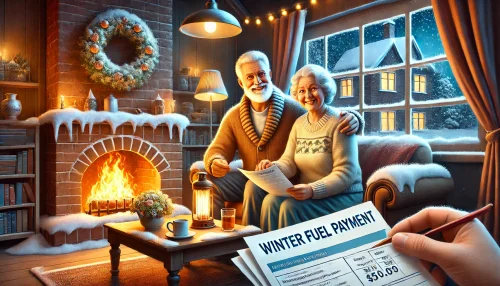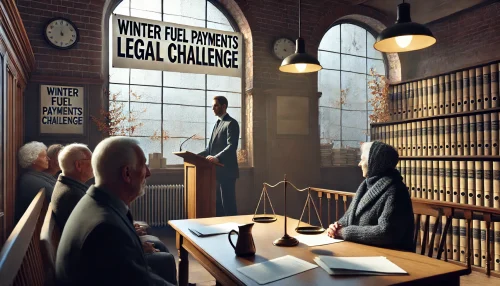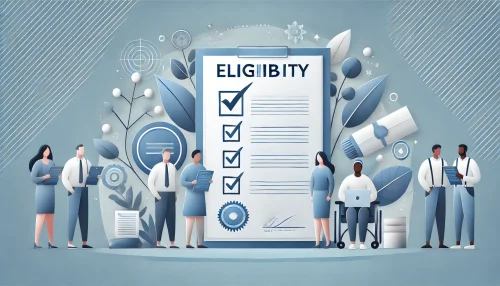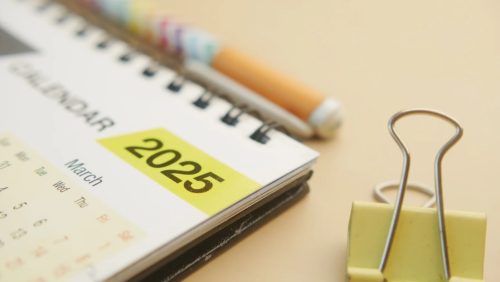Table of Contents
Why has the Winter Fuel Payment legal challenge become such a significant topic in the UK? As winter approaches, the legal proceedings surrounding the reduction of Winter Fuel Payments have left many pensioners concerned about their ability to afford heating costs.
The issue stems from recent government changes to make these payments means-tested, a move that could leave millions without the assistance they depend on.
This blog will explore the key updates on winter fuel payments legal challenge, the implications for pensioners, and what you can do to support or challenge the case.
What Is the Winter Fuel Payment?

The Winter Fuel Payment is an annual, tax-free financial benefit provided to eligible households to help cover heating costs during colder months.
Designed as a safety net for pensioners, the payment ensures that older adults, who are often more vulnerable to cold weather, can afford to heat their homes adequately.
In 2024, changes were introduced to make the payment available only to those meeting specific means-tested criteria.
This includes recipients of benefits such as Pension Credit, Universal Credit, or income-related Employment and Support Allowance. The payment amounts vary based on age and household circumstances.
For example:
- Pensioners over State Pension age but under 80 can receive £200.
- Those aged 80 or above may receive up to £300.
The Winter Fuel Payment has historically been a lifeline for millions of pensioners, but the recent cuts have sparked widespread criticism.
Who Benefits From Winter Fuel Payment?
This benefit primarily targets older adults born on or before 22 September 1958. Historically, it was universally available to those meeting the age requirement, ensuring broad support for the elderly.
However, the recent shift to means-tested eligibility narrows the scope significantly.
Eligible groups now include those receiving:
- Pension Credit
- Universal Credit
- Income Support
- Jobseeker’s Allowance (income-based)
- Employment and Support Allowance (income-related)
The changes particularly affect pensioners who may not qualify for these specific benefits but still struggle with rising heating costs.
These adjustments have led to the current legal challenge, which argues that the policy disproportionately impacts vulnerable groups, including those with disabilities or lower incomes.
What Is the Winter Fuel Payments Legal Challenge About?

The legal challenge against the changes to Winter Fuel Payments has gained momentum due to concerns about their impact on pensioners.
The case, spearheaded by the Govan Law Centre, argues that the government failed to conduct a thorough equality impact assessment.
The claim, brought by Peter and Florence Fanning, highlights how these cuts disproportionately affect individuals with protected characteristics such as age and disability.
The challenge has received permission to proceed, with the Scottish Court of Session deeming it to have a “real prospect of success“.
Key players in the case include:
- Joanna Cherry K.C.: Acting as senior counsel.
- Mike Dailly: Junior counsel from Govan Law Centre.
- A team of experienced solicitors providing legal support.
If successful, this challenge could set a precedent for reinstating the £300 payment for millions of pensioners.
How Much Winter Fuel Payment Could You Get?
The amount you receive through the Winter Fuel Payment depends on your circumstances, such as age and living conditions. This tax-free benefit is aimed at helping pensioners manage their heating costs during the colder months.
- Pensioners under 80 years old: Eligible to receive £200.
- Pensioners over 80 years old: Eligible to receive £300.
However, eligibility is conditional on receiving at least one qualifying benefit, such as Pension Credit or Universal Credit. Those living in care homes during the qualifying period (24 June to 22 September 2024) are excluded.
The recent changes, making the payment means-tested, have reduced the number of recipients. The ongoing legal challenge argues these exclusions disproportionately affect vulnerable pensioners, leaving many without adequate financial support during winter.
By addressing these issues, campaigners hope to make the Winter Fuel Payment accessible to a broader group of eligible pensioners, ensuring they are not left struggling with heating costs.
Are You Eligible for Winter Fuel Payment?

To qualify for the Winter Fuel Payment for the winter of 2024-2025, you need to meet specific eligibility criteria. These include age, benefit status, and residency requirements.
- Age: You must be born on or before 22 September 1958.
- Benefits: You must receive one or more qualifying benefits such as Pension Credit, Universal Credit, or Income Support.
- Residency: You must have lived in England or Wales during the qualifying week (16–22 September 2024).
Certain groups are excluded, including:
- Individuals living in care homes or nursing homes during the qualifying period.
- Those not receiving any of the listed qualifying benefits.
These eligibility criteria are at the heart of the ongoing legal challenge. Campaigners argue that the new rules unfairly penalise vulnerable groups, including pensioners who may not qualify for benefits but still face high heating costs.
How to Claim Winter Fuel Payment?
The process of claiming the Winter Fuel Payment depends on your benefit status and whether you’ve received the payment before.
- Automatic Payments: If you already receive qualifying benefits, such as Pension Credit, the payment will be made automatically.
- Manual Claims: First-time claimants or those not receiving automatic payments need to apply manually.
Here are the steps to claim the payment:
- Check Eligibility: Use the government’s benefits calculator to confirm your eligibility.
- Submit Your Claim: Apply online through the government portal or by contacting the Winter Fuel Payment helpline.
- Provide Documentation: Submit necessary documents, such as proof of benefits or residency, to complete your claim.
If you are unsure about the process or face difficulties, you can contact the Department for Work and Pensions for assistance. Timely applications are essential to ensure you receive the payment during the winter period.
When Will Winter Fuel Payments Be Paid?

The Winter Fuel Payments for 2024-2025 are scheduled to be paid between 25 November 2024 and 29 January 2025.
Most eligible recipients can expect to receive their payments by December 2024. This financial assistance is vital for pensioners to help manage heating costs during the colder months.
If you have not received your payment by the final date of 29 January 2025, it is essential to contact the Winter Fuel Payment helpline for assistance. The helpline can provide guidance and resolve issues related to delayed or missing payments.
Delays may occur due to ongoing legal proceedings surrounding the recent policy changes. However, resources and support are available for those affected.
Ensuring you meet the eligibility criteria and following up promptly can help secure the payment you are entitled to this winter.
What to Do If You Didn’t Get the Winter Fuel Payments?
If you are eligible for the Winter Fuel Payment but have not received it, there are several steps you can take to resolve the issue.
Missing payments can cause unnecessary stress, especially during the colder months when heating costs are a priority. Here’s what to do:
Verify Your Eligibility
- Double-check that you meet all the criteria for receiving the payment. Ensure you were living in the UK during the qualifying week (16–22 September 2024) and that you receive one of the listed means-tested benefits, such as Pension Credit or Universal Credit.
Contact the Helpline
- Call the Winter Fuel Payment helpline at 0800 731 0160 to report the missing payment. Have your National Insurance number and any relevant details ready when you call.
Seek Legal Advice
- If your payment is denied after verification, you may need to consult legal services. Advocacy groups such as Govan Law Centre and Age UK can assist with advice or representation.
Taking these steps ensures that eligible individuals have the support they need to navigate the process and secure their payments.
What Can Individuals Do to Support or Challenge This Case?

The legal challenge against Winter Fuel Payment cuts has gained national attention, and individuals can contribute in meaningful ways.
Whether you are directly affected or want to stand in solidarity with those impacted, there are several actions you can take.
Support Advocacy Groups
- Organisations like Govan Law Centre are at the forefront of this legal battle. You can support them by donating, volunteering, or spreading awareness about their efforts.
Contact Local MPs
- Write or call your local Member of Parliament to express your concerns about the cuts to Winter Fuel Payments. Politicians play a key role in shaping public policy, and your input can make a difference.
Raise Awareness
- Use social media to share information about the legal challenge. By amplifying the voices of pensioners and advocacy groups, you can help bring attention to this critical issue.
These efforts not only support the ongoing case but also help to advocate for fair policies that protect vulnerable groups in the future.
Conclusion
The Winter Fuel Payment legal challenge underscores the urgent need to safeguard vulnerable pensioners from the dangers of fuel poverty.
With millions at risk due to recent cuts, this case is more than just a legal battle; it is a fight for fairness and social justice.
As the proceedings unfold, the outcome could influence broader government policies, potentially leading to reforms that better protect the elderly and disadvantaged.
Whether you’re directly affected or wish to support those impacted, staying informed is vital.
Advocacy and action can drive meaningful change, ensuring that no one has to choose between warmth and affordability during the cold winter months.
FAQs About Winter Fuel Payments Legal Challenge
What is the court challenge for the Winter Fuel Payment?
The legal challenge argues that the government failed to assess the impact of cutting Winter Fuel Payments on vulnerable groups. This includes those with protected characteristics such as age and disability.
Who is not entitled to Winter Fuel Allowance?
Residents of care homes during the qualifying period and individuals not receiving qualifying benefits are excluded. This includes those who do not meet the means-tested criteria.
Do both husband and wife pensioners get Winter Fuel Allowance?
Payments are made per household, not per individual. Only one payment is provided per qualifying household.
Are other European countries facing similar cuts to fuel allowances?
Some European nations have reduced heating assistance, though policies vary across countries. Each country has its own approach to addressing fuel poverty.
What is the timeline for the judicial review of Winter Fuel Payments?
A procedural hearing is scheduled for 4 December 2024, with the substantive hearing fixed for 15 January 2025. These dates are critical for determining the case’s outcome.
How does the Winter Fuel Payment differ from other energy assistance programs?
It is a tax-free annual payment specifically for pensioners to help with winter heating costs. Other programs may be tied to energy providers or have broader eligibility criteria.
Can individuals appeal directly if they lose their Winter Fuel Payment?
Yes, individuals can appeal through the Department for Work and Pensions or legal channels. Legal advice is also available for those seeking further assistance.




